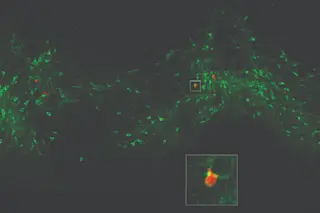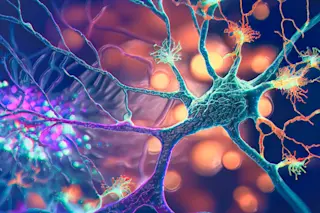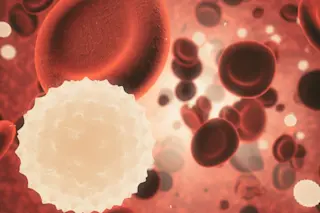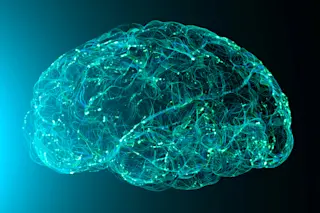What's the News: One of memory's big jobs is to keep straight what actually happened versus what we imagined: whether we said something out loud or to ourselves, whether we locked the door behind us or just thought about locking the door. That ability, a new study found, is linked to the presence of a small fold in the front of the brain, which some people have and others don't---a finding that could help researchers better understand not only healthy memory, but disorders like schizophrenia in which the line between the real and the imagined is blurred.
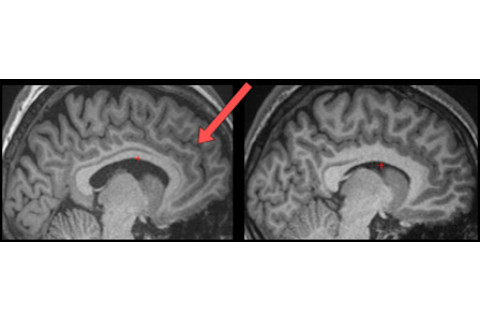
Scans of a brain with a distinctive paracingulate sulcus (left, marked by arrow) and without one (right)
How the Heck:
The researchers looked at MRI brain scans of a large group of healthy adults. In particular, they were looking for the paracingulate sulcus (PCS), a fold near the front of the brain. There's a lot of variability in the PCS: some people have quite distinctive folds, others have barely any. It's in a part of the brain known to be important in keeping track of reality, which is why the researchers chose to study it. Of the 53 people selected for the study, some had this fold on both sides of their brain, some had it on one side, and some had no fold.
The participants saw some full well-known word pairs ("Jekyll and Hyde") and some half pairs ("Jekyll and ?"). If they only saw half of a pair, they were asked to imagine the other half ("Hyde"). After each pair or half pair, either the participant or the experimenter said the whole pair aloud.
Once they'd seen all the pairs, the participants were asked two questions about each phrase: Did you see both words of the pair, or just one? And who said the phrase aloud, you or the experimenter?
People who didn't have the fold on either side of their brains did worse on both questions---remembering if something was real or imagined, and remembering who'd done something---than people whose brains had the fold. But they felt as confident in their answers, meaning they didn't realize they'd been mixing up internal and external events.
What's the Context:
Poor reality monitoring---not clearly remembering whether something was real or imagined---could play a role in diseases such as schizophrenia. Schizophrenics often report hallucinations, like hearing a voice when no one's speaking. "Difficulty distinguishing real from imagined information might be an explanation for such hallucinations. For example, the person might imagine the voice but misattribute it as being real," explained lead researcher Jon Simons in a prepared statement.
Earlier studies have shown that people with schizophrenia frequently have smaller or no PCS, suggesting a lack of this brain structure---and the associated difficulties with reality monitoring---could play a role in the disease, Simons said.
Not So Fast: The study only shows that the PCS and reality monitoring are linked, not that the presence or absence of the PCS is what causes some people to be better than others at this sort of memory task. It could be that another factor in brain development causes both small PCS and poor reality monitoring, for instance. The Future Holds: The research team is now planning to study whether these findings hold true for people suffering with schizophrenia
, by looking at whether schizophrenics with little to no fold have more hallucinations that participants with a clear fold. Reference: Marie Buda, Alex Fornito, Zara M. Bergström, and Jon S. Simons. "A Specific Brain Structural Basis for Individual Differences in Reality Monitoring." Journal of Neuroscience, October 5, 2011. DOI: 10.1523/JNEUROSCI.3595-11.2011
Image: Journal of Neuroscience, Buda et al.








